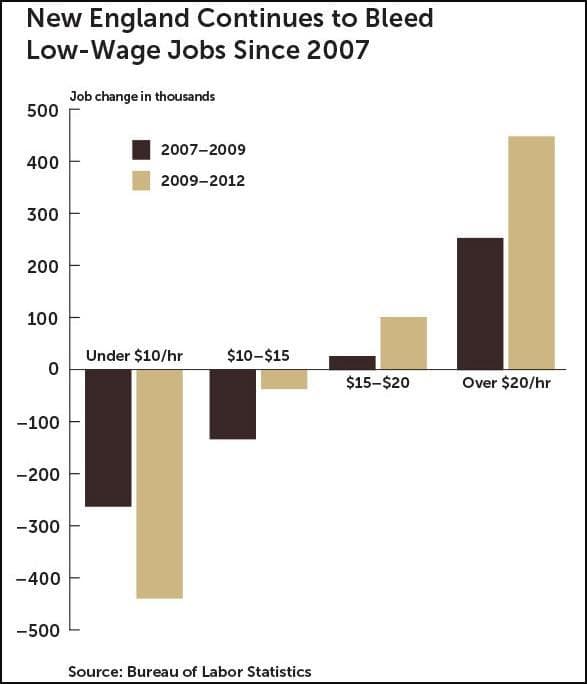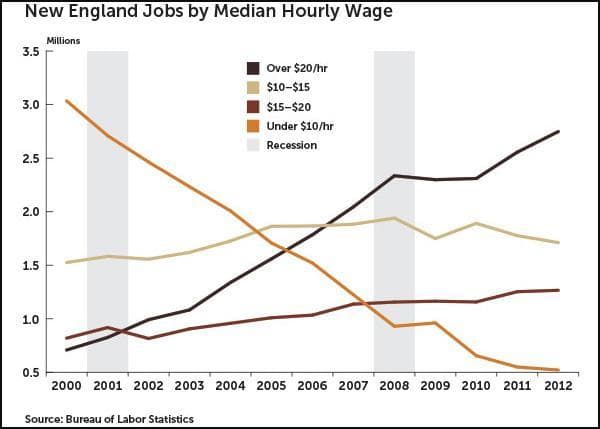Advertisement
Report: New England Continues To Lose Low-Wage Jobs
A common view of America's uneven post-recession recovery is that low-wage jobs have been largely replacing middle-wage positions in the country's labor market.

That's not been the case in New England.
From 2009-2012, communities in this region continued to lose lower-wage jobs (under $10/hour), while middle-wage positions grew slightly, and higher-wage jobs (over $20/hour) increased more.
The unique nature of New England's recovery is detailed in a new Community Outlook Survey (PDF) from the Federal Reserve Bank of Boston, out Tuesday.
So wait, is this good news? Have we just traded low-wage jobs for better-paying ones? Unfortunately, it’s not that simple, as Anthony Poore, a Boston Fed senior community development analyst and co-author of the report, told me.
"Some people may look at [our report's graphs] and say, 'This is a good news message in that those people who formerly had the low-wage, low-skill jobs, well hey, now there's greater opportunity,' " he said. "The reality of the situation is that educational attainment is lacking for those who had those formerly low-wage, low-skill jobs, and in fact they're not able to take advantage of these new job opportunities. So those people who formerly had those low-wage, low-skill jobs have no jobs at all any longer."
He added: "Frankly, some segments of our population have been completely left behind."
Poore says it's too early to determine why our region's labor market hasn't followed the nationwide "hollowing out of the middle" trend.
New England's dual labor market paths — a loss of low-wage jobs, a growth of high-wage jobs — have existed for far longer than the recovery, as this 2000-2012 graph shows:

If this trend continues, Poore says the region could see increasing wage and class disparities.
The jobs findings are included in the Boston Fed's community survey, which polls organizations that provide direct services to lower-income households. The latest iteration surveyed 157 service providers, across the region's six states, in April.
Most survey respondents cited availability of employment opportunities (from which the above data were culled) as a challenge facing New England's lower-income communities.
Among the other issues facing these communities, according to respondents: affordable housing, sequestration and federal budget cuts, and state and local budget cuts.
Related:
This program aired on July 16, 2013. The audio for this program is not available.
